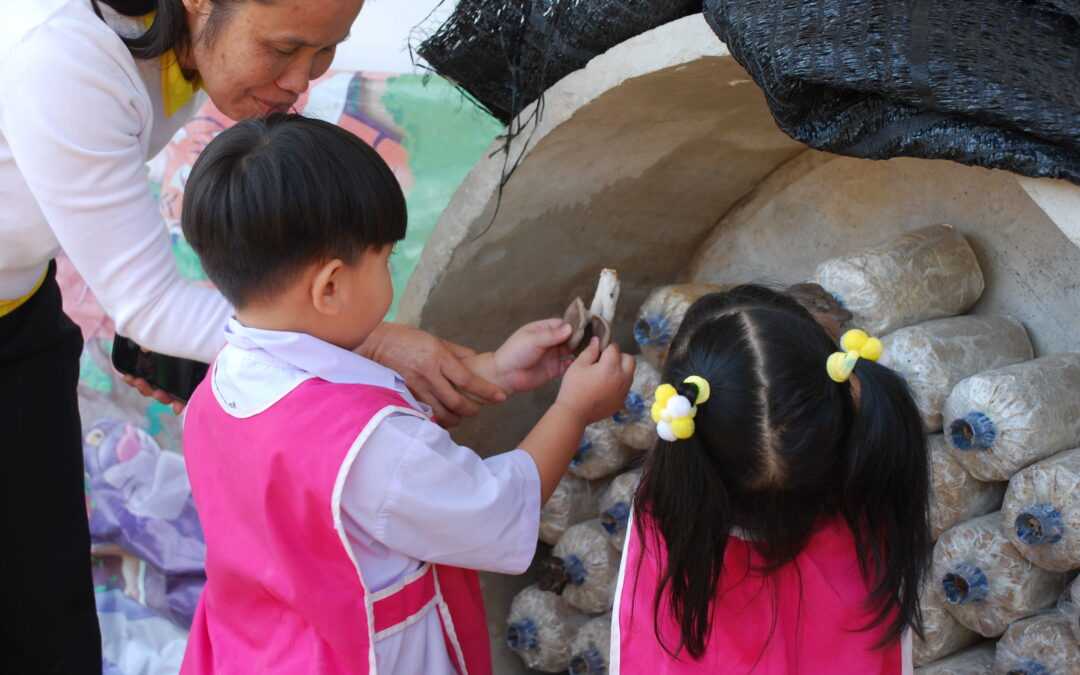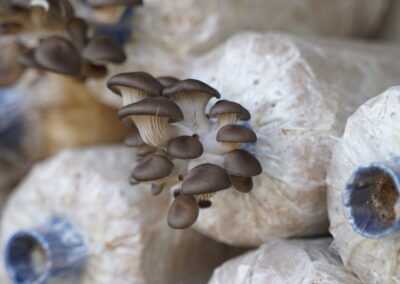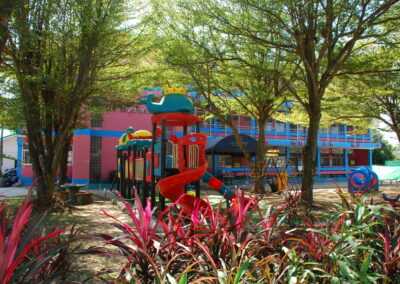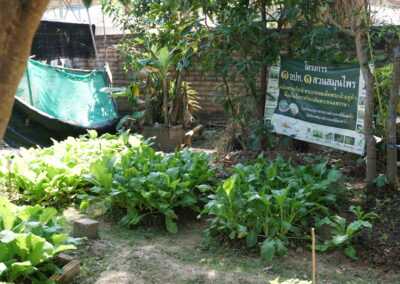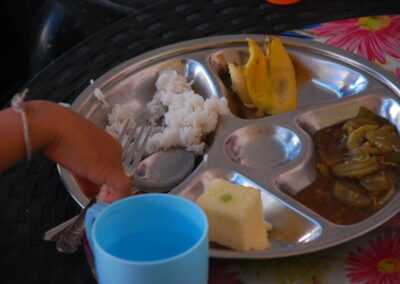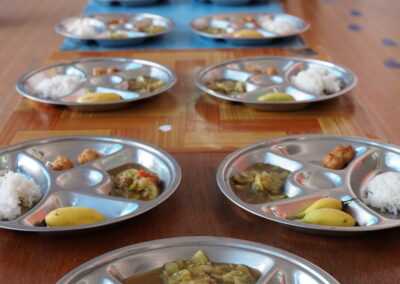Safer food, healthier children, cleaner planet
How can we weave healthy and sustainable diets into everyday school life and get the young ones excited about good, nutritious food? WWF’s Future Food Together Initiative in Thailand tackled this complex question head-on, supporting a pilot project in June 2024, and which has the potential to serve as a model to be replicated in other areas in Thailand.
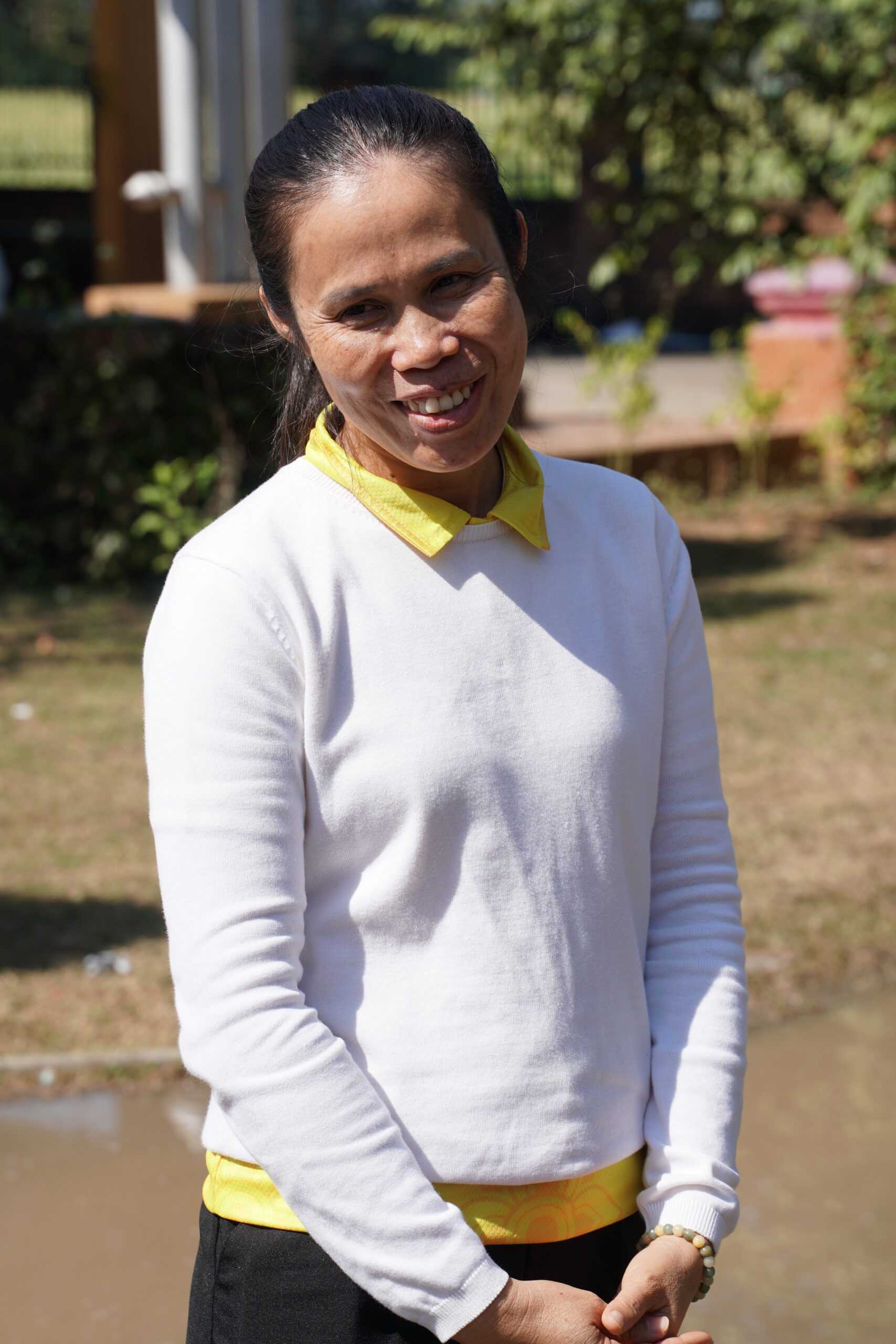
Laying the foundations for the future
But it’s about more than “just” lunch. “With our educational project, we are targeting the youngest members of our community,” says teacher Sukanya Thongtha who leads the initiative. “We are laying the foundations for awareness on sustainable, healthy and safe diets in our community. After all, the children are our future.” WWF’s goal is to make food systems sustainable, trough strategies that interconnect production to consumption (including reducing food loss and waste), which requires working closely together with local communities.
For now, the focus is on providing tasty and healthy lunches every day at the project schools – good for the kids and good for the environment. Specially trained cooks, like Nongyao Saensuwan, only use local, organic ingredients. “I plan monthly meals with the school management and a nutritionist, using a lot of vegetables, fruits and rice from organic farms in the region.” This aligns with FFT’s holistic approach: creating healthy food from more sustainable sources, which preserves the ecosystems that sustain life, while improving children’s nutrition during this crucial developmental stage, instead of sourcing from the conventional agriculture practices that are associated to negative social and environmental impacts.
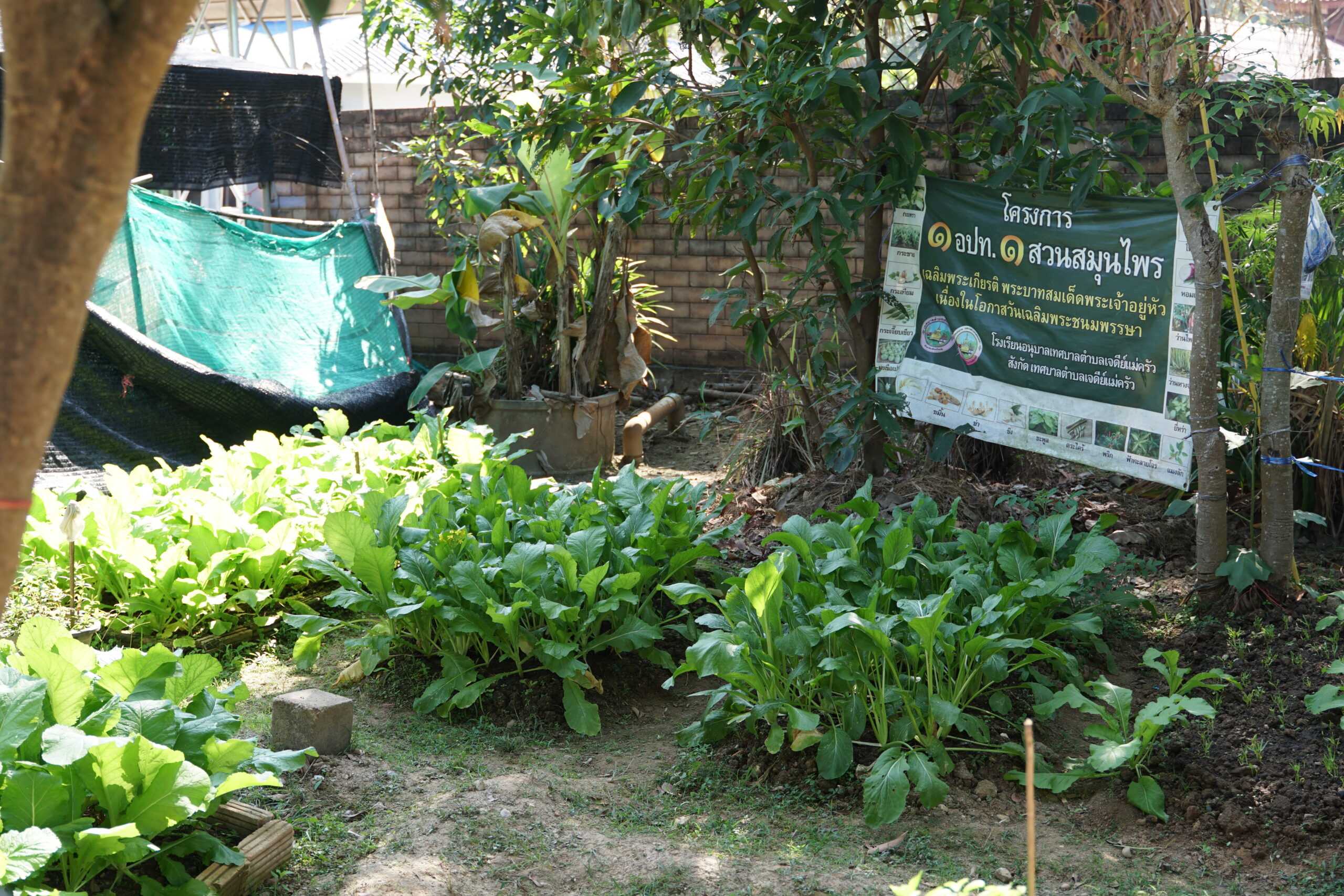
Kids learn how to grow their own healthy food
Currently, 265 students benefit from this initiative, and, indirectly, their parents do too. It works this way: nutritionists train teachers, who then pass on their gained knowledge about healthy, organic diets to the students in a playful way during lessons. In a small school garden and through special vegetable planting classes, the children learn how to grow their own fresh vegetables for school meals in a nature-positive way, without synthetic fertilizers or pesticides.
They also learn about the health benefits of vegetables, a stepping stone to a high-quality and nutrient-rich diet. In class, Sukanya Thongtha also teaches how to prepare food in a way that preserves nutrients. For example, explaining that blanching or steaming vegetables better retains nutrients than stir-frying. Kids are encouraged share what they learn with their families. “When I go to the market with my son, he explains to me which vegetables we should buy,” says Jintana Pridarat, the mother of little Phuwanan, a student from Chedi Mae Krua Kindergarden. “He tells me about the dishes they ate at school and the vegetables the contain.” She believes the school lunch initiative is a fantastic way to educate the next generation. “It supports children’s development and health by teaching them about local food and encouraging them to appreciate a broader range of ingredients”, says Jintana Pridarat.
The school relies entirely on produce from local small-scale farmers, while the school garden is only used for learning. In the future, however, the garden may yield enough produce for school meals, allowing the children to grow their own healthy and sustainable veggies. In any case, what’s most important is that the kids will grow up with this knowledge, put it into practice and share it with their own kids and loved ones.
The FFT Initiative stands for re-designing entire food systems and value chains – away from land destruction, monocultures, and pesticides – towards nature-positive and organic farming, forest restoration, natural pest solutions and new local markets and supply chains: From sustainable agriculture to healthy, nutritious and safe food for our children and a healthy planet

